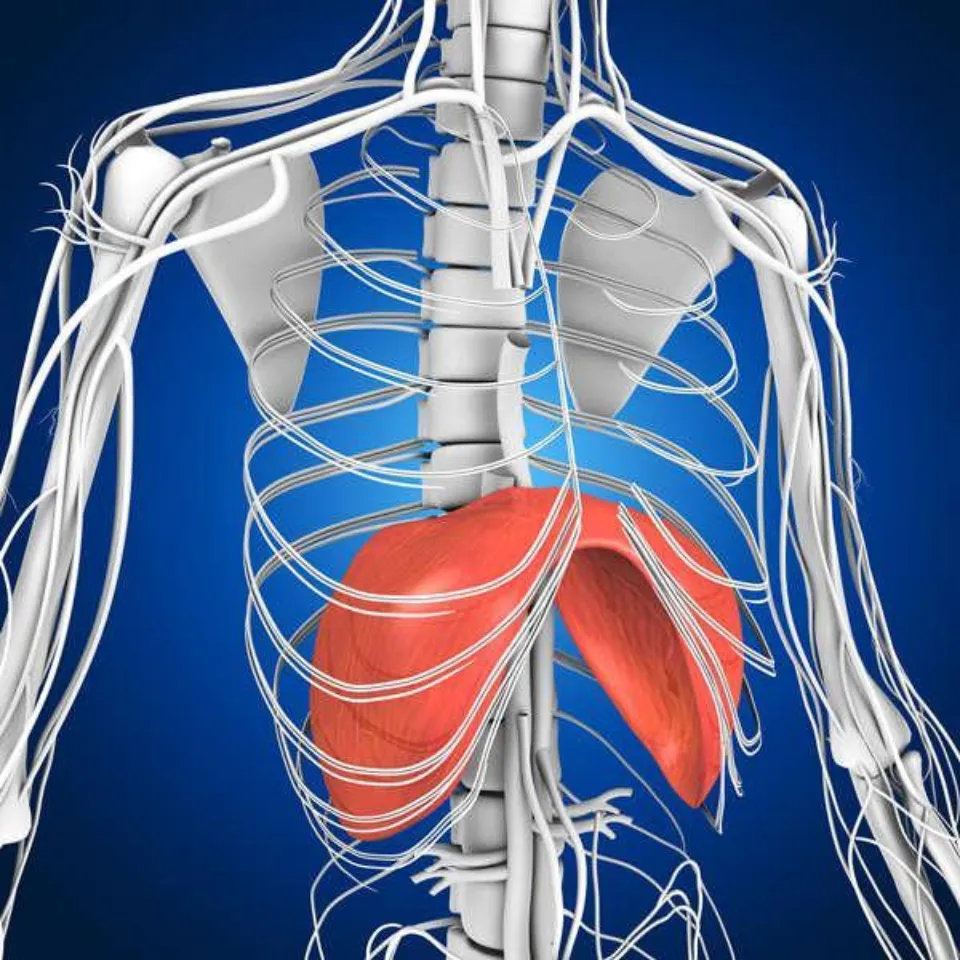
How to Sleep With Intercostal Muscle Strain – Tips for a Good Night’s Sleep
It can be difficult to get a good night’s sleep while dealing with an intercostal muscle strain because of how painful and inconvenient it can be. You can use a number of methods and tactics, though, to get some relief and get better rest while you’re recovering.
In this article, we’ll provide helpful advice on how to get a good night’s sleep despite having an intercostal muscle strain so that your body can repair and regenerate overnight.
What Are Intercostal Muscles?

The intercostal muscles, which are smaller muscles located between your ribs, help your ribcage to expand and contract. The intercostal muscles are divided into three groups: the innermost intercostal muscles, the outermost intercostal muscles, and the internal intercostal muscles.
A different key function is the focus of each set. They can be strengthened through stretching exercises and resistance training. In addition to helping with breathing, they also play a role in maintaining the torso’s brace. Most intercostal muscle strain is a result of:
- A blow to the back, ribs, or chest directly causes injury to the muscles.
- excessive stretching or abrupt twisting.
- Reaching overhead.
- specific exercises (like weighted pullovers).
Common symptoms of an intercostal muscle strain include:
- Whenever I cough, sneeze, or breathe, I experience chest pain.
- Pain when stretching, twisting, or bending the ribcage.
- back or ribs that are constricted.
- tense, sore, swollen, and/or discolored muscles.
The age of the patient and the muscle’s strength and flexibility are two additional risk factors that significantly raise the likelihood of developing intercostal muscle strain.
Read More: What is Muscle Wasting from Tetanus Shot
Tips on How to Sleep With Intercostal Muscle Strain

You wish you could sleep better, but the discomfort won’t let you do so. First and foremost, the best treatment for repairing intercostal muscles is sleep. Here are some suggestions for sleeping with strained intercostal muscles.
Getting a Goodnight’s Sleep
In general, whether you’re healthy or not, doctors advise getting a good night’s sleep. The ideal amount of sleep is between six and eight hours. It shouldn’t come as a surprise if your doctor notes that you had a good night’s sleep.
The body releases cytokines, an anti-inflammatory protein, while you sleep. This protein supports the body’s slow-motion self-healing. This is why a lack of sleep will inevitably affect your immune system, slowing down the healing process.
Sleep Position
Choose the most comfortable sleeping position for you based on the intensity of your pain. In general, it’s not a good idea to sleep on your stomach because it exacerbates pain. Particularly if you’ve recently had cervical neck surgery, try to stay away from it as much as you can. However, the best position for sleeping is on your back.
If this is your position of choice, you may also use a recliner. If you don’t have a recliner, make sure the chair you’ll be using is cozy enough to allow you to fall asleep. The full review on how to sleep with broken ribs is available if you’re suffering from excruciating rib pain.
If you’ve chosen this position, you can also use a recliner. Make sure the chair you’ll be sitting in is comfortable enough for sleep if you don’t have a recliner.
Breathing Exercises
For a restful night’s sleep, gentle breathing exercises are imperative. If you are already having breathing problems, it might be challenging to take deep breaths. If you can do these breathing exercises, your body will receive more oxygen, which will help greatly in reducing stress.
Spend a few minutes taking slow, deep breaths before drawing them out. Breathe slowly and steadily while doing this. Make sure your breathing exercises aren’t straining you so much that you experience rib pain. Finally, avoid breathing too quickly and shallowly, which can tighten your muscles and even trigger panic attacks.

Better Mattress Choices
You already know how important sleep is for treating conditions like ear infections or broken ribs as well as intercostal muscle pains. Choosing the ideal mattress for your condition should be done slowly. Making the wrong mattress choice will make it difficult to fall asleep or stay asleep.
Your mattress’s type is always the most important consideration. You should keep in mind that in this case, the mattress’ price does not affect how well you sleep. Below are some of the factors to consider when choosing the best mattress;
Larger mattress: A larger mattress will significantly improve your chances of getting good sleep. As you’re less likely to bump into each other when sharing this mattress with a partner, it’s also beneficial.
Spine support: Additionally, make sure the mattress supports the natural curvature of your spine before buying it. This means that your spine should be in the same natural position when you stand up and when you lie on a mattress.
Comfort: Before purchasing the mattress that’s right for them, many mattress sellers let their customers try out various mattresses. Investing some time in finding a comfortable mattress will help you take advantage of this chance.
How Long Does Rib Muscle Strain Last?
If you are unaware of how to sleep more comfortably with rib muscle strain, it may last longer.
Such discomfort can result from, for instance, sleeping on a mattress that is not supportive. This is due to the fact that some mattresses might feel too firm against your ribs. The rib region and other areas of the body can become even more painful if you sleep on a hard mattress.
A mattress that is too soft, on the other hand, will cause your body to sink too far, misaligning some internal and external body parts, including your spine. To prevent this kind of pain and discomfort, consider sleeping on a high-quality memory foam mattress, such as the Zephyr Mattress.
You’ll find it simpler to fall asleep once you learn how to sleep with intercostal muscle strain.
How long this pain will last is also determined by the above-described grading system. The pain typically lasts longer the higher the grade.
How to Avoid Intercostal Muscle Strain?

Finding potential causes that are related to your lifestyle is the best way to prevent muscle strain.
For instance, if you’re an athlete, think about using different defensive strategies to safeguard your rib cage when taking part in contact sports.
When exercising or at home, avoid lifting heavy objects. The Occupational Safety and Health Administration recommends lifting not more than 51 pounds. If you need to lift heavier objects, think about getting assistance or using a machine.
Avoid overstretching your body or starting your workout by lifting heavy weights. Instead, begin slowly and give your body time to adjust to avoid stretching your intercostal muscles.
Consider exercising as well. Some good examples of exercises for rib muscle strain include yoga and belly breathing.
Consider your sleep quality as being most important. An American’s average daily sleep duration is 6.8 hours.
Your rib cage, spine, neck, back, and other body parts need to be supported and contoured by your mattress and other sleeping accessories for this reason.
This antimicrobial memory foam mattress is a great example of a mattress designed for the ultimate comfort and support.
Key Takeaways

Breathing issues may result from rib muscle strain, which is not something to take lightly.
Additionally, if your body isn’t getting enough oxygen, you’ll probably have ongoing headaches, agitation, and confusion. A coma results when the brain experiences extreme cases of severe oxygen deprivation.
Finally, even though some accidents are unavoidable, there are some aspects of your life that you can control, like the quality of the mattress you sleep on. Learning how to sleep with intercostal muscle strain can help alleviate this pain as you undergo treatment.





Average Rating